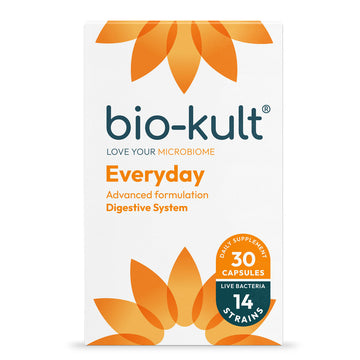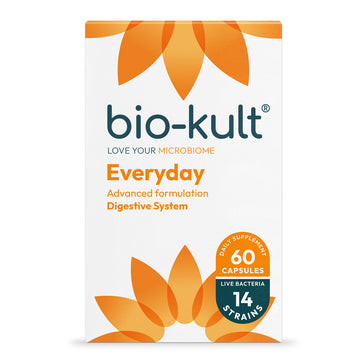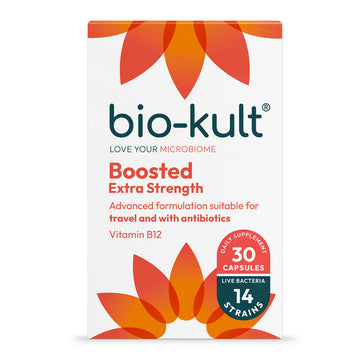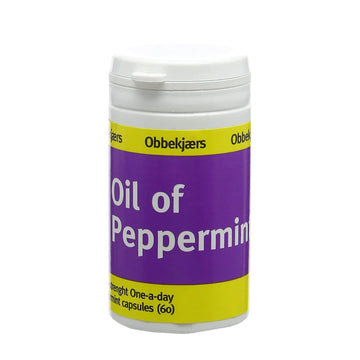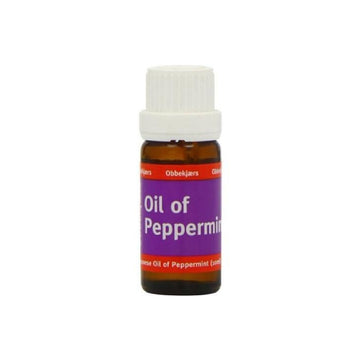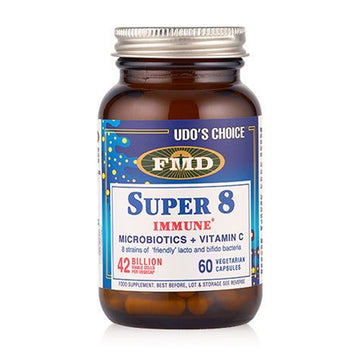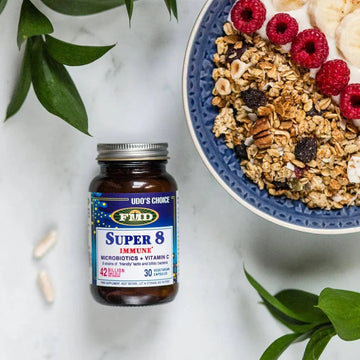IBS can be a difficult condition to deal with. Not only is it uncomfortable, but the symptoms themselves can cause great distress for sufferers. We see a huge numbers of customers instore with digestive and gut concerns on a regular basis, so you're not alone.
The exact cause of Irritable Bowel Syndrome is unknow, but there are certain factors that play a part. And the good news is that once you know these IBS triggers (mind, they do vary from person to person), you can can try and stay on top of them. We've rounded up some common IBS triggers and prevention tips below.
The Digestion System
First up, we're going to talk a little bit about the digestive system as whole. Our digestive system is central to the maintenance of our body’s overall health and wellbeing so it's important it is in good working order.
If your digestive system isn't functioning, it means the food we eat is not being broken down into the basic building blocks needed to repair and rebuild the body. A healthy digestive system also allows all of the other body systems to have the energy needed to function. Therefore, maintaining healthy gut flora and regular bowel motility are so important.
What is IBS?
Irritable Bowel Syndrome (IBS) is one of the most common digestive issues that we hear about here in Evergreen. It's a distressing condition that affects the digestive system. And with it can come digestive concerns such as:
- heartburn
- stomach pain
- cramping
- abdominal pain
- bloating
- gas
- diarrhoea
- constipation
- food sensitivities
- allergies
- atopic conditions such as eczema, asthma, hayfever, rhinitis
- a range of other auto-immune diseases
It's not known exactly what causes irritable bowel syndrome, but a variety of factors play a role. Triggers vary from person to person. We're going to take a look at some of the main IBS triggers and prevention tips below.
IBS Triggers and Prevention
When it comes to IBS triggers and prevention, there are certain factors that pop time and time again. Once you know what it is that affects you and your body, you can work around them. Here are some common IBS triggers and prevention tips.
Foods Sensitivities
The role of food sensitivities and intolerances in irritable bowel syndrome is not yet clearly understood, but many of us have more severe symptoms when we eat certain foods. A wide range of foods have been implicated including:
- sugary treats
- hot spices
- too much fat
- some fruits
- fibre rich foods such as beans, peas & lentils
- cabbage
- cauliflower
- broccoli
- milk
- carbonated beverages
- alcohol
These are just some of the foods that may cause a flare up. It can be helpful to keep a food diary where you keep track of your daily food intake. Record any digestive discomfort or presenting symptoms you may experience after certain foods to help you pinpoint foods that are problematic for you.
Eating Tips
It might sound silly but the first step towards tackling IBS is to learn how to eat again. Although what you eat could trigger the symptoms of IBS, the way you eat is likely to as well. Avoid rushing food to ensure you don’t swallow air, which causes bloating. You should also aim to eat smaller meals more often. This encourages your digestive system to get into a routine and will help to avoid bloating and diarrhoea.
Eating Pattern
Try to eat bigger meals earlier on in the day and avoid, where possible, a large evening meal. You should also avoid eating foods that are hard to digest, such as raw fruit and vegetables, after 4pm.
Stress Levels
Most people with IBS find that their signs and symptoms are worse or more frequent during periods of increased stress. For instance, they can flare up at exam time, during the menstrual cycle, if you're sleep deprived, or during the first weeks on a new job. It's best to try and control stress levels through gentle exercise, sufficient rest and daily fresh air.
Hormonal Imbalance
Research shows that women are twice as likely to have IBS. As a result, researchers believe that hormonal changes play a role in this condition. Many women find that signs and symptoms are worse during or around their menstrual periods. Therefore, supporting digestive and liver function during this time can be beneficial and may hep alleviate symptoms.
The Gut Microbiome and IBS
The Gut Microbiome plays a key role in maintaining bowel motility, enhancing nutrient absorption, maintaining optimal immune function and alleviating IBS symptoms. Factors which can negatively impact on the balance of beneficial bacteria include:
- stress
- travel
- our daily food choices
- antibiotic usage
- infection
- food poisoning
- high sugar diets
- low fibre diets.
An effective solution is to supplement the microflora by taking a high quality, multi-strain probiotic formula on a daily basis. By increasing the amount and variety of friendly microflora, you are increasing the first line of defence for the body’s wellbeing.
Probiotics
Different probiotic strains work in different ways. Always choose the best probiotics for your needs. With regards to digestive function, the main strains you are looking for include Lactobacillus Acidophilus and Bifidobacterium Bifidum. Read more about probiotics for IBS.
Once you begin to repopulate your gut with a wide variety of healthy bacteria, it’s important to feed them so they can flourish and thrive in a healthy gastrointestinal tract. The way to do this is with Prebiotics.
Prebiotics
Prebiotics are plant fibres that provide the food for the beneficial gut bacteria and act as the terrain for them to grow and thrive in the gut. It’s important to have a diet rich in fibres such as inulin, fructooligosaccharides (FOS) and pectin. These can be found in all fibre rich fruits and vegetables in varying amounts. Highest levels can be found in the foods listed below. Prebiotic rich foods that can help feed our beneficial bacteria include:
- Bananas
- onions
- garlic
- beans and legumes
- artichokes
- leeks
- root vegetables
- oatmeal
- wholegrains
- Cruciferous vegetables such as broccoli and cabbage
- asparagus
- dark green leafy vegetables
- apples
- apple cider vinegar
IBS and Exercise
Even though you might not feel like it, regular exercise can really help your symptoms. Exercising regularly can reduce bloating and constipation and it doesn't have to be anything too strenuous, brisk walking or even yoga for thirty minutes, five times a week will be a serious help.
Get Plenty of Sleep
The severity of IBS has been shown to be directly impacted by having little or poor quality sleep. Avoid caffeine later on in the day and make sure you get the rest your body needs.
Natural Remedies that May Help with IBS
Peppermint Oil
Peppermint oil may help to relax the muscles in the intestines, consequently alleviating the symptoms of IBS. Whether you drink peppermint tea, add oil to water or take capsule supplements every day, it’ will help.
Black Pepper
Black pepper oil may help to stimulate your digestive system and relieve cramps and wind, so it’s always worth having some to hand.
Please note, this blog is for informational purposes only and should not replace medical advice.
It’s always best to consult your doctor before taking any new supplements, treatments or remedies if you are pregnant, breastfeeding or on medication.
Author: Claire Grady
Checked and updated: 2 September 2021



